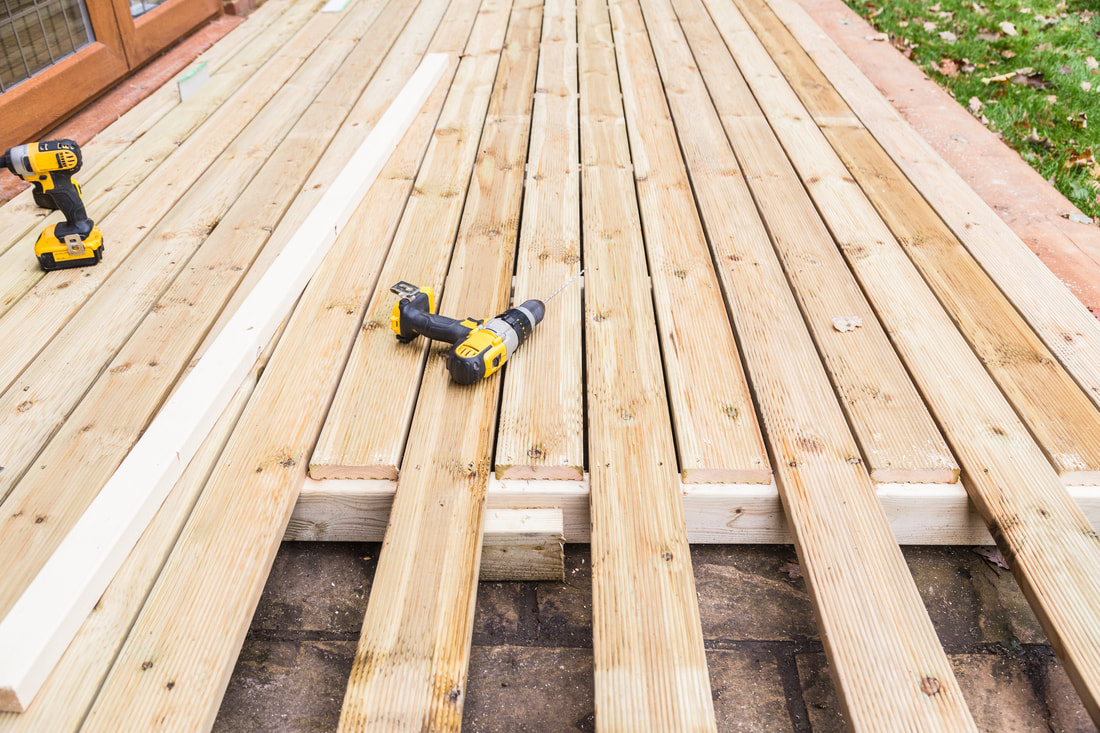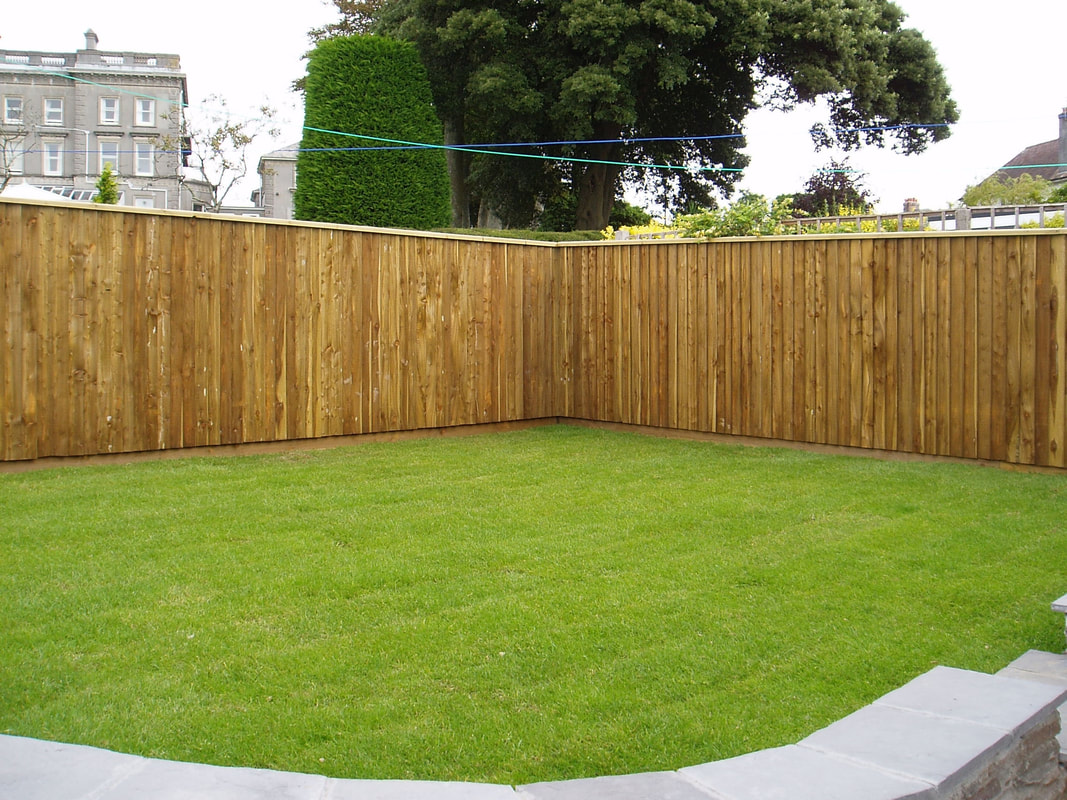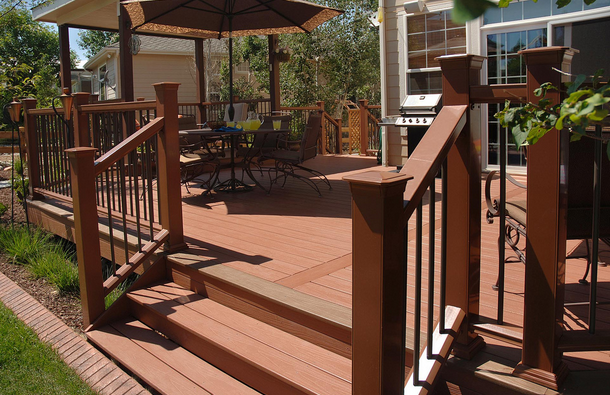The decking and fencing blog
|
Outdoor living spaces serve as fantastic venues for relaxation and entertainment. As such, to help you enjoy your garden to the fullest, this article delves into some frequently asked questions related to decking and fencing, providing first-hand guidance from industry experts.
1. What are the most durable materials for decks and fences? For decks, the choice often rounds down to composite and natural wood. Composite is renowned for its longevity and low maintenance, but wood, particularly types like redwood, cedar, or ipe, is equally durable if maintained properly. When it comes to fences, vinyl, wrought iron, and aluminum tend to offer the best longevity. Though wood, particularly cedar and redwood, can be a durable choice if properly maintained. 2. How should I maintain my deck and fence? For wooden decks, annual washing and periodic sealing are necessary, while composite decks merely require occasional washing. Fences made from wood need occasional repainting or re-staining, but metal or vinyl fences generally only need a quick rinse now and then to remove dirt or debris. 3. Do I need a permit to build a deck or fence? Local laws vary, but generally, you will need a permit for deck projects,especially if your deck is a certain height off the ground or if it will be attached to your home. For fences, permit requirements can depend on the fence’s height and your locality’s regulations. Always check with your local building department. 4. Can decking and fencing be installed any time of the year? Yes, decks and fences can be installed throughout the year, but it's usually easiest during the spring or summer when conditions are warm and dry. Installing in the winter can be more challenging due to freezing temperatures and precipitation, but it is achievable with an experienced professional. 5. How long does it take to install a deck or fence? The length of the project largely depends on the size, complexity, materials needed and the professionals handling the job. A simple deck or fence can be completed in a few days, while more elaborate projects may take several weeks. 6. Should the same material be used for both the deck and fence for design continuity? You certainly can use the same materials for a unified look, but it's not a requirement. Your deck and fence should complement each other, whether they're made from the same material or not. 7. What is the expected lifespan of a deck or a fence? Composite decks can last 25-50 years, while natural wood decks have a lifespan of about 10-30 years, depending on the type of wood and maintenance level. As for fences, you can expect anywhere between 15-20 years for wooden fences, while metal or vinyl fences can last up to 50 years or more. 8. Can I install a deck or fence myself? While many homeowners take on decking and fencing as DIY projects, be warned—it does require a significant level of skill and effort. Errors can cause longer-term issues, as well as increased costs and time. Hiring a professional contractor ensures a job well done both aesthetically and structurally. To wrap up, every decking and fencing project brings its own sets of challenges and considerations. While this article seeks to answer the most frequently asked questions, it would always be beneficial to consult with a professional and get personalized advice depending on your specific situation. Make informed decisions that align with your vision, budget, and long-term satisfaction. Enhance the beauty and functionality of your outdoor space by creating decks and fences that will gleam with brilliance.
0 Comments
A fence plays a crucial role in your home, enhancing privacy, security, and contributing significantly to the aesthetic appeal of your property. Therefore, choosing the right fence is a significant decision. With the myriad of options available in designs, materials, and sizes, it can be challenging to determine which fence will best meet your needs. Here is a comprehensive guide to guide homeowners through the process. Enabling a local fence contractor to fit your fence is the best way to ensure a good installation.
1. Identify Your Needs Before choosing a fence, it's vital to identify your specific requirements. If you need to keep pets and children safe, a chain-link fence might be suitable. For privacy, consider taller, more opaque fence designs, while ornamental fences can enhance the visual appeal of your home. 2. Consider the Material Fences come in a variety of materials, with each offering different benefits. Wood fencing is popular for its natural appeal and versatility in design options. Vinyl fencing provides a maintenance-free option, while metal fences bring a combination of durability and security. Chain-link fences, meanwhile, are cost-effective and easy to install but provide less privacy. 3. Choose the right design The design of your fence can either blend in with the architectural design of your house or become a striking feature. Consider fences with lattice work or intricate iron detailing for an eye-catching feature. For a more subtle look, a simple flat top or dog ear style might be more suitable. 4. Size Matters The height and length of your fence are determinants in maintaining the balance between security, privacy, and aesthetic appeal. Remember that a high fence may offer excellent privacy but could potentially overshadow your garden or make your yard feel smaller. Taking accurate measurements of your desired fencing area will also help when it comes to purchasing materials or shopping for quotes. 5. Neighborhood and Local Regulations Take into account the existing fences in your neighborhood, for both style and height. This can maintain a consistent look and feel in the community. Also, check with your local regulatory bodies on restrictions in terms of height, materials, and even colors allowed for residential fences. Familiarize yourself with your property line to avoid disputes with neighbors. 6. Maintenance Responsibilities Different fences require varying levels of upkeep. Wooden fences may need regular staining or painting, while rust may be a problem with certain metal fences. On the other hand, vinyl and aluminum fences require minimal maintenance. Your chosen fence should match your lifestyle and the amount of time you are willing to invest in its care. 7. Installation Options Decide whether you want to install it yourself or hire professionals. While installing the fence yourself gives you complete control and saves on labor costs, it can be time-consuming and require specific tools. Hiring professionals may cost more initially but it will be faster, and you can have the added assurance that it has been installed correctly. 8. Consider Your Budget The cost of fencing varies tremendously depending on the materials, design, total length, and installation costs. Remember to factor in the long-term costs of maintenance and potentially replacing parts of the fence when establishing your budget. 9. Think Long-term A fence is a long-term investment; its durability should be considered along with other factors. Investing in high-quality materials and installation could save you money and time spent on maintenance or replacements in the future. 10. Privacy and Noise If you live near a busy street, fencing options with noise diminishing properties might be worth considering. Solid fences such as those made from wood or vinyl can help reduce street noise. In conclusion, choosing the right fence requires thoughtful deliberation over your needs, budget, desired style, and potential long-term commitments. While each fencing option offers unique benefits, the right one will seamlessly blend functionality and aesthetics while enhancing the overall value of your property. By considering these factors, homeowners can ensure that they make an informed choice. Please see our fencing page for more details For many homeowners, one of the best ways to increase both the living space and the value of their property is by adding an outdoor deck. With its potential to host relaxing family gatherings, summer barbecues, or quiet afternoons soaking up some sun, a deck can provide a multipurpose extension to your living area. But why should you have your deck professionally installed instead of tackling it as a DIY project? Let's delve into the benefits of investing in a professionally installed deck.
1. High-Quality Workmanship Professional deck builders work with a wide range of decking materials and are familiar with the challenges posed by different environments and weather conditions. Their craftsmanship ensures a high-quality deck that stands the test of time, resulting in less need for maintenance or repairs. 2. Customisation Another advantage of hiring professionals is the potential for customization. Whether you dream of a simple wooden platform or a complex, multi-tiered deck with built-in seating and planters, a professional can help you design and build a deck that suits your lifestyle and complements the aesthetics of your property. 3. Time and Cost Efficiency While DIY projects may initially seem more cost-effective, unexpected issues often arise, leading to additional expenses and delays. Professional installers, on the other hand, have years of experience that enable them to anticipate and prevent such issues. Thus, they can complete the project within the anticipated timeframe and budget, saving you from potential stress and additional costs. 4. Compliance with Local Building Codes Building a deck involves understanding and meeting various local codes and regulations, which can be quite complicated for a novice. Hiring a professional ensures that all the necessary permits are obtained and the project is compliant with all relevant regulations, preventing potential fines or problems if you decide to sell your home. 5. Warranty and Peace of Mind Lastly, most professional deck contractors offer warranties on their work, providing you with peace of mind. If any problems arise after the installation, they will be handled promptly and efficiently. In conclusion, while a DIY deck project might seem tempting, the benefits of a professionally installed deck cannot be overlooked. From offering high-quality craftsmanship and customization options to ensuring time efficiency, code compliance, and providing warranties, professional services offer homeowners a hassle-free option to maximize their outdoor space effectively. So make the most of your home and enjoy the added comfort and versatility that a professionally installed deck can bring to your outdoor living experience. |
AuthorWe aim to help our customers in every way possible. This blog aims to provide the advice you need about your decking and fencing needs in Plymouth Archives
October 2023
Categories |




 RSS Feed
RSS Feed